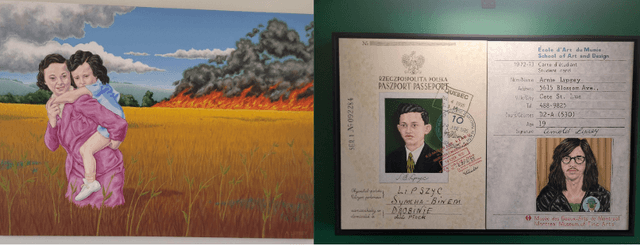Among Leonard Cohen’s many talents, his achievements as a novelist are often overshadowed by his Hall-of-Fame musical career. For those curious about his literary career, there is perhaps no better place to begin than with his 1963 debut novel, The Favourite Game.
Cohen’s protagonist, Lawrence Breavman, is born into a well-respected family in the Jewish community of Westmount, Montreal. The book begins with Breavman’s upbringing and later explores his romantic life as he and his best friend, Krantz, prowl around Montreal in the 1960s. Breavman gradually matures into a literary figure with an uncanny ability to harness tortured and beautiful elements of the human experience in poetry.
Cohen’s narrative is imaginative and compelling. He often breaks into immersive prose with meticulous descriptions of scenes that convey the essence of his characters with an intimacy and profound depth that reminds the reader why his legacy is honored with numerous murals across Montreal.
Early on, it is clear that Breavman’s obsessive-compulsive mind is unlike that of the typical youth. You quickly become accustomed to his detached yet acutely critical and poetic perspective—along with his perturbing imagination. The first chapters of the book share scattered depictions of Breavman’s childhood, the tragic passing of his father setting the foundation for his tumultuous development and his deviant adventures to come. Furthering the somber tone of Breavman’s childhood, Cohen paints disturbing scenes of pet rats dying of neglect and Breavman’s mother crying in grief. Most strikingly, there is a scene of Jewish children role-playing Nazi soldiers in a dimly lit garage wherein a young Breavman first realizes his propensity for sexual desire. Certain crude sections of the novel might have you skimming over scenes like this one, but Cohen’s raw and intense writing is captivating nonetheless.
Much of the darkness Cohen weaves into Breavman’s psyche is drawn from the underlying theme of the collective trauma of the Holocaust. A fascination with fascism, power, and control festers in Breavman’s mind from the beginning of the story which leads him to study hypnotism with deceitful aspirations. Testing his hypnotic powers on neighborhood dogs, he indulges in dictatorial reveries where he assembles all animals of the earth to pursue world domination.
Breavman’s endeavors are mostly made in the company of his closest confidant, Krantz. The pair pursue Jewish women at communist meetings and mingle with gentiles in ballrooms while attempting to grab the attention of shiksas. Their kin-like relationship is defined by the cohesion of their conversations which seems to merge them into one being. Cohen’s narration parallels the back-and-forth banter of talmudists—only the content of their conversations reaches well outside the bounds of the Mishnah and Maimonides. They discuss tales of war, terror, and torture while seamlessly exchanging sly remarks:
“Do you feel Jewish, Krantz?”
“Thoroughly.”
“Do your teeth feel Jewish?”
“Especially my teeth, to say nothing of my left ball.”
Later in the novel, Breavman develops into a respected writer as he derives poetic inspiration from his life experiences. The emergence of Breavmen’s success is regarded by his own community with disdain. At the same time, he faces hostility at gentile cocktail parties where he is seen to be “threatening the purity of their daughters” with “his Semitic barbarity hidden under the cloak of Art.” Yet in this setting, he still employs Yiddish expressions and spontaneously breaks into Hasidic dances in gentile living rooms.
The Favourite Game is not a novel for the faint of heart. The twisted, dark themes and reflections of trauma early in the novel are invariably intense. The more intimate themes are balanced between Bukowski-esque descriptions of women and deeply intricate expressions of one’s desires becoming entwined with those of another. The final chapters become increasingly non-linear as Cohen indulges in abundant prose, putting on full display his renowned poetic genius. The beauty of Cohen’s writing will have you wanting more at the turn of every page—this book is one to get lost in.
Powered by Froala Editor






